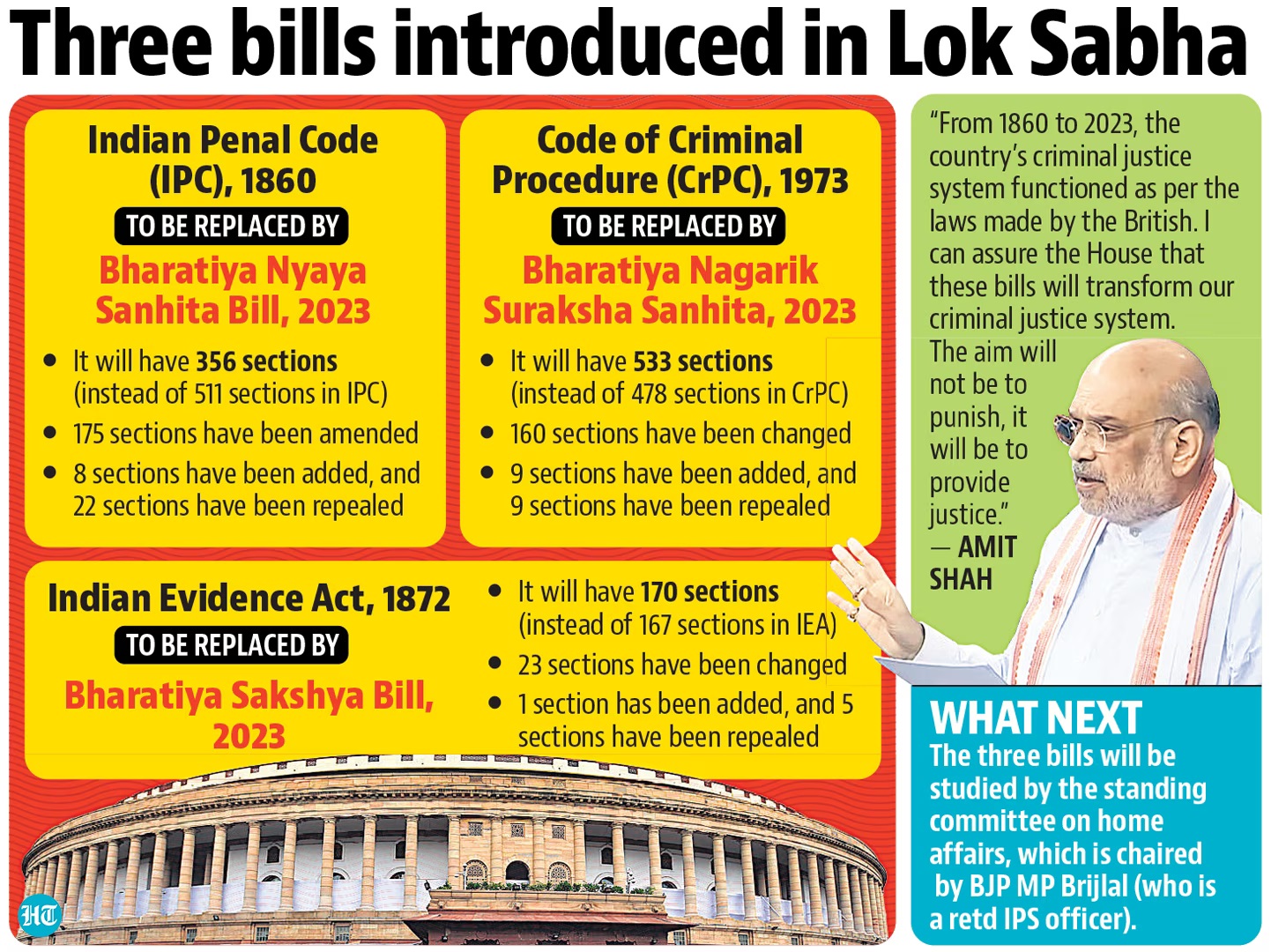The Indian Penal Code from the colonial era will be replaced by the Bharatiya Nyaya (Second) Sanhita Bill, which broadens the definition of a terrorist act. It suggests incorporating risks to the nation’s monetary stability and economic security under its jurisdiction.
Section 113 declares as terrorist acts any act that creates, produces, smuggles, or circulates counterfeit coins, paper money, or other materials with the intent to undermine the monetary stability of India.

Source: DICS
The Center also aims to include offences against the State under its purview by expanding the law’s scope.Both the Indian Evidence Act and the Code of Criminal Procedure are scheduled to be replaced by the Bharatiya Sakshya (Second) Bill and the Bharatiya Nagarik Suraksha (Second) Sanhita, respectively.
The Lok Sabha is scheduled to consider the Bills today, and voting may occur tomorrow. The Center has ruled out submitting the Bills to any other body and denied that they were passed in an arbitrary amount of time. It would be in the public interest to have an educated discussion outlining the specifics of the Bills.
Source: The Economic Times
A detailed description of the suggested modifications is required. It’s also critical to alleviate worries that the new legislation will give the government a huge increase in authority.Due to claims of abuse and overreach, the Unlawful Activities (Prevention) Act is already entangled in controversy. There is value in suggestions like requiring filming throughout some phases of an inquiry and using community service as a form of punishment for minor infractions. It would be appropriate to go over each of the major changes in detail and weigh the advantages and disadvantages.
What do you think about this? Comment below.

